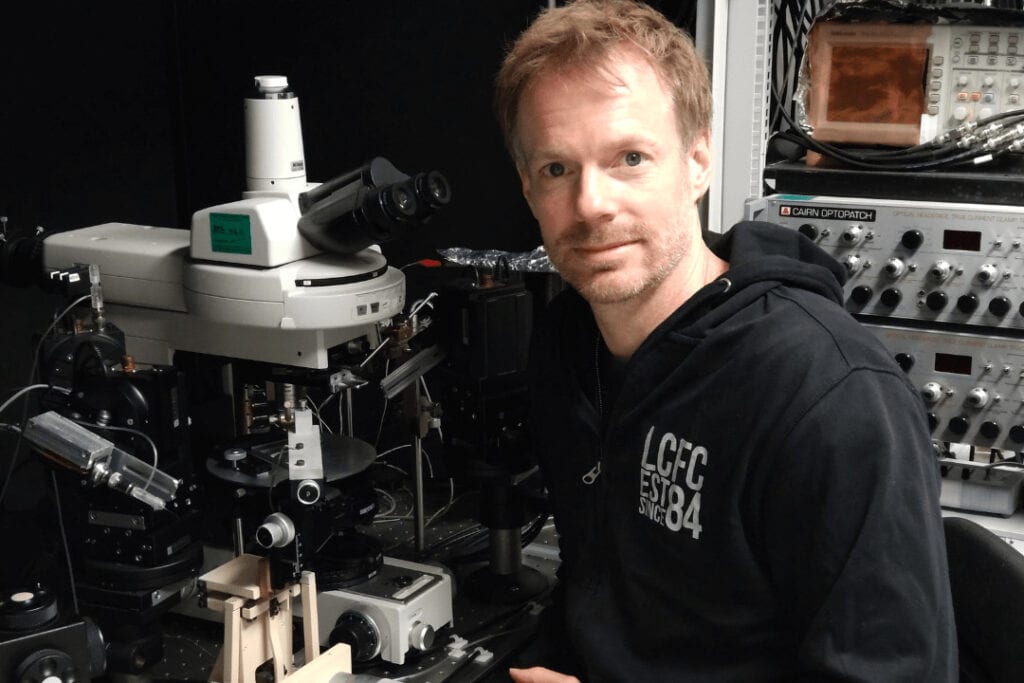University of Sheffield

Dr Stuart Johnson is a lecturer and researcher in the School of Biosciences and part of the Hearing Research Group at the University of Sheffield.
One of his research interests lies in understanding how noise-induced hearing loss interacts with age-related hearing loss in the mammal, to determine the impact of noise exposure on the cochlea during ageing.
More about Stuart’s work
He wants to find out whether hearing loss caused by ageing shares common underlying biological processes with noise-induced hearing loss that are made worse and accelerated by prior damaging noise exposure.
Stuart’s interest in the ageing of the hearing system stems from his recent research investigating the effects of ageing on the sound-sensing hair cells in the cochlea.
Understanding the impact of noise exposure on age-related hearing loss
Read about Stuart’s research projectStuart’s approaches to hearing research
The next big step in hearing research, in my opinion, will be the development of gene therapies for hearing loss. There is an enormous amount of research currently being done in many labs worldwide with many breakthroughs restoring hearing function in different animal models of genetic hearing loss. However, there is still a lot to be done before much of this research will become useful to humans.
Deafness affects an enormous number of people worldwide. Hearing loss becomes worse with age and is one of the most prevalent chronic sensory disorders in the elderly. Deafness or hearing loss can be very debilitating in day-to-day life, with some people feeling isolated and cut-off from other people.
Hearing loss has been associated with depression and, in the longer term, is the largest potentially modifiable risk factor for dementia. The current treatments for hearing loss are limited to hearing aids or cochlear implants in extreme cases.
These can be quite effective but don’t work well in every situation. Therefore, the development of new, more effective, treatments is essential. This will require a thorough understanding of the mechanisms underlying the disease, which is a goal of my research.
I have chosen to work in hearing research because I am fascinated by the intricate mechanisms of hearing in the mammalian cochlea. I find it incredible how the auditory system has evolved such elaborate structures and specialised cell types to enable a sense of hearing from fluctuations in air pressure around the head.
The opportunity to investigate the mechanisms underlying the function and dysfunction of the cochlea and to identify potential targets to improve hearing loss therapies is what motivates and inspires me every day.
I hope that my research will help to identify whether there are common cellular mechanisms underlying noise- or age-related hearing loss that could be potential targets for the development of future therapies to combat progressive hearing loss.
The Discovery Grant from the RNID will allow me to devote time to addressing the interaction of noise-induced hearing loss and age-related hearing loss, to determine the impact of noise exposure on the cochlea during ageing.
The funding will allow me to employ a post-doctoral research associate who will carry out the majority of the experiments and expand this area of research much more than I would have been able to otherwise. It will give me a unique opportunity to expand the research repertoire of my lab and my reputation in the hearing research field.